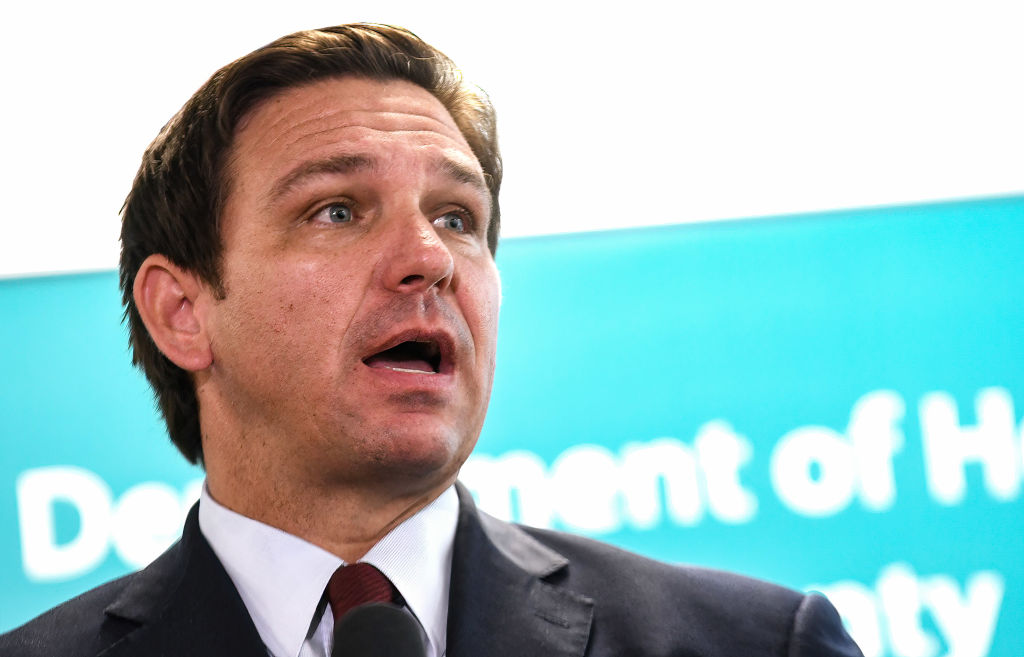That feeling when our politicians terminate our form of government.
The Future of Optimism

Accepting our reckoning with our humanity and our technology.
Optimism has a past, present, and future. Right now, we’re stuck in its present. If we don’t move on to its future, we won’t have one.
The optimism of the past focused in a naïve way on our humanity. Its optimism about our humanity denied the reality of our human condition. Secular rationalists argued that because people could and would do amazing things, we could solve our problems at scale through the world-changing power of inspiration, progressively uniting everyone into a global civilization.
These overblown and willfully ignorant hopes were dashed, as they always are, by the difficult realities attendant upon the human condition. No matter how expert our engineers or ethicists, we remain inherently errant, forever prone to temptation and apt to lure ourselves and others into seeking false shortcuts to satisfying our desires.
The ultimate flaw is that one of our grandest desires is to abdicate responsibility. Taking full responsibility for being human requires waking up each day and taking upon ourselves without resentment or complaint the unceasing labor of tending to the work of culture, the work without which human life swiftly decays, degrades, and perverts itself into something not just decadent and depraved but inhuman or subhuman.
People become annoyed with how banal the laborious work of culture is. Even at its most idyllic or romantic, this work is vulnerable to attack as somehow beneath us because this work is so basic and repetitive that it pulls us forever away from our biggest longings for wish fulfilment. The good life is always at risk of being boring—not because it is thoroughly boring, although the labor required to keep it running well often is, but because our lives are short, finite, and we don’t like taking responsibility for our own mortality, and the reckoning, the final weighing up of whether worthily we spent the worth of our life, that it implies and entails.
The banal, boring good life makes us feel we can only really matter by doing something just bad enough to give life spice and savor. Few people really want to be bad for the sake of badness, not because we are angelic creatures but because much of doing bad is, also, hard, boring work. The great allure of being bad is that one of the most naughty things we can do is say no to the responsibility of continuing on human life and culture. Rejecting this responsibility opens up what feels like a limitless horizon of boundless possibility. So exciting!
And yet few of us want a bad life so exciting that it puts us at serious risk of a seriously bad end. We want to eat our cake and have it too—all the irresponsibility that tricks us into thinking we have all the time in the world to indulge our taste for excitement safely enough to glut us with suckled pleasure from the teat of the world; none of the fear and anxiety attendant upon whomever or whatever we offload and outsource our abdicated responsibilities to. What a nightmare, what a sick joke to be the butt of, for us to make our problems belong to some entity or organization that shocks us one day by making us pay some horrible price for the bargain.
These predicaments have led us progressively to fall back onto the optimism of the present. Whereas the optimism of the past falsely elevated our humanity by denying our reality, the optimism of the present falsely elevates our technology by denying our humanity. All right, okay, present-day optimism concedes—we humans are awful. Humanity has been tried and has been found wanting. Our position atop the animal kingdom is vain, cruel, and unjust; our relationship to nature is irreconcilably hostile and toxic; our attempt to base social order off of our biological reality has led mostly to misery, suffering, and brutal inequality; even after tearing down the worst political and ideological arrangements, most of us are increasingly ignorant, ugly, unhappy, unfit, unlovable, in short, not worth the trouble of being human.
Rather than a blessing, our humanity is a curse; rather than idiotically slaving away to merely ameliorate the sick joke of our condition by trying to commune with an absent or make-believe deity, we must focus the energy of our most intelligent people on convincing the degenerate masses to join in a single world game the prize of which is getting at least a few of our most capable specimens to the breakthrough point of escaping our human identity with our spark of consciousness intact.
This has long been the gnostic worldview, present in some form in every Western religion over these many centuries. Today the most plausible version of gnostic optimism—that humanity is trash, but that we can redeem ourselves by liberating our true identity as pure spirit from our false identity as defective meatbags—is decidedly the technological one. Yes, many may be forced to live initially less human lives with radically lower horizons and pathetically insignificant experiences; yes, only a precious few may at first make it through the great gnostic filter to become the first brave transhumans through which all future progress will eventually flow to all. But this is the price of optimism! To unlock tomorrow the infinite experience of total knowledge, you have a moral duty to upload yourself today into the infinitely cringe metaverse. After all, at least even the cringe metaverse is free of the humiliating and disgusting pain of being the decayed overdomesticated human creature you are today. You are already imprisoned in a false reality, the reality of the clay vessel created by the evil demiurge; what could be lower or more depressing than that? Step right this way…
Only, gnosticism has never delivered on its cosmic promises. Knowledge has never given us the complete access to the true communion that we crave. Our search for a language perfect enough to command knowledge to fully fulfill our grandest desires has never been consummated, not even by code. Math has never become deterministic enough to grant our increasingly invisible network of devices the responsibility for the labor of life that we wish to alienate ourselves from so utterly. And as one look into the depths of quantum physics will remind us, no code, no math, ever will. Staring into the abyss of number, worshiping the relations of the numbers, leads not to a cold and supreme transcendence of our humanity but to a recursive spiral into serpentine madness.
There is no perfect human order, not on this earth or in some artificial earth meant to transcend it whether through enclosure or escape. Even the ultimate in technical detail throws us back for life onto the implicit, the mysterious, onto all beyond capture or release. Our labors are unceasing and required: forever, in our space and time, incomplete, the conditions of our taste of grace and joy.
Herein lies the optimism of the future—of accepting our responsibilities, for the gift of our incarnate, ensouled humanity and for its use to protect and strengthen our labor of culture, endless until a time and place established from outside our human spacetime and unknowable within it. It is an optimism fueled by our understanding that neither we nor our machines can perfect us, although, in an inescapable paradox, we always appear to be incrementally more perfectible and always long for the sweetness of that next increment. It is an optimism deep in its spiritual wisdom that, even as we have created machines too powerful for any person or group of people to seize control of the world back from those machines, or seize of all those machines themselves, we still have the warrant, the authority, and the competency to ensure that the devices in our particular slices of human spacetime learn to serve our human ends and obey enough of our human commands.
The unprecedented greatness we will attain by achieving this limited, distributed, and almost parochial mastery over the machines in our civilization’s spacetime will come only at the salutary cost of a tremendous new humility. No civilization, no group of people however expert or visionary, can any longer expect or imagine its conquest of the whole—not the whole world, not the whole galaxy, in some cases not even a whole continent. The digital entities that have lifted control of the world away from any human claimants obsolesces the longstanding belief that technology must universalize those who wield it because it is the essence and logic, the being, of technology to universalize. This technology, even as it universalizes itself, pluralizes us. Even the great universal doctrines of the West—democracy, liberalism, Christianity, communism—all must confront and accept the new terms of the pluriverse that digital technology has reshaped the world into.
As with any new order, the risks and perils are great; after so many generations of feverishly laboring to escape the unceasing labor that is our responsibility, our trial, and our lot, now comes a merciful chance, and a merciful commandment, to begin fresh—not wiped of our memory and our identity as before, but returning with renewed gratitude to the deepest and richest memories of our true identity of which we, still, are inheritors. This is the optimism of the future, waiting, with grace, for us to take up—before it is too late.
The American Mind presents a range of perspectives. Views are writers’ own and do not necessarily represent those of The Claremont Institute.
The American Mind is a publication of the Claremont Institute, a non-profit 501(c)(3) organization, dedicated to restoring the principles of the American Founding to their rightful, preeminent authority in our national life. Interested in supporting our work? Gifts to the Claremont Institute are tax-deductible.
A governor details how his state has resisted federal overreach.
The dos and don’ts when talking to the New Right
Merrick Garland has shown us why he never belonged on the Supreme Court.
It's not actually about Rittenhouse.
How America’s biggest crisis killed my nephew.






